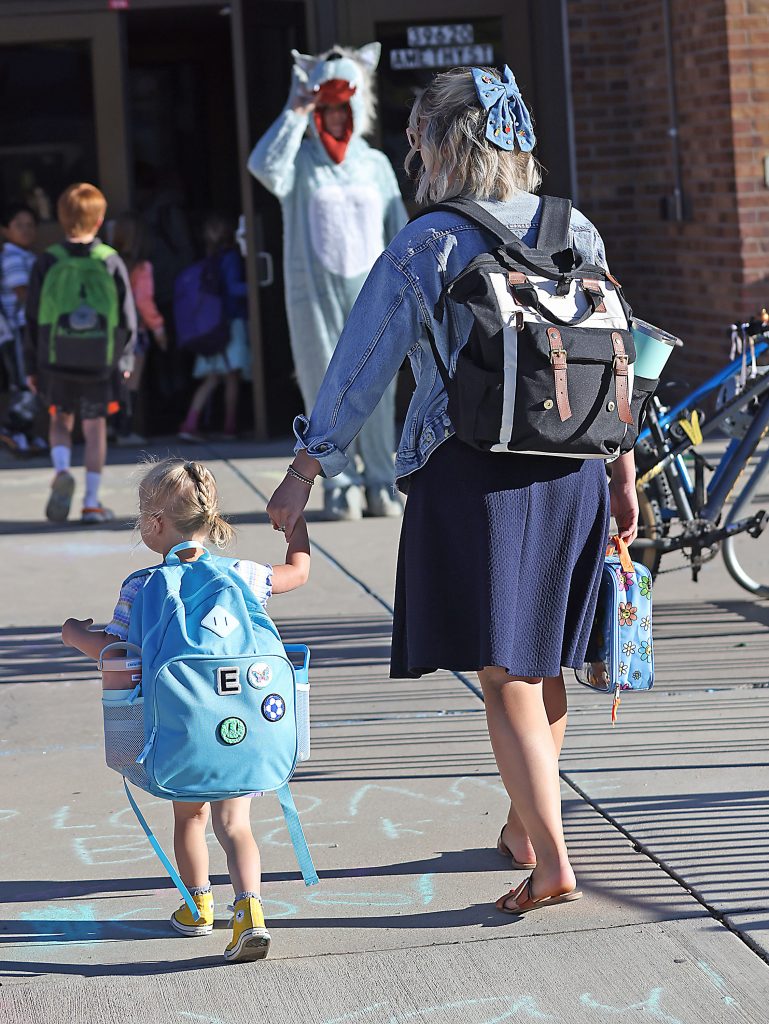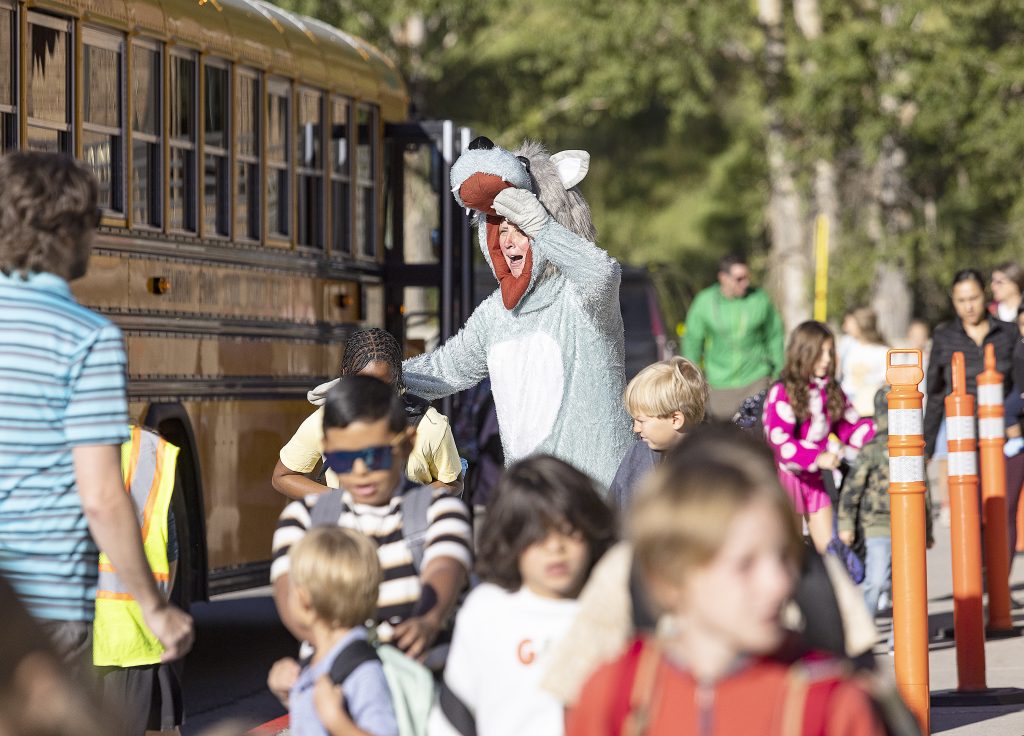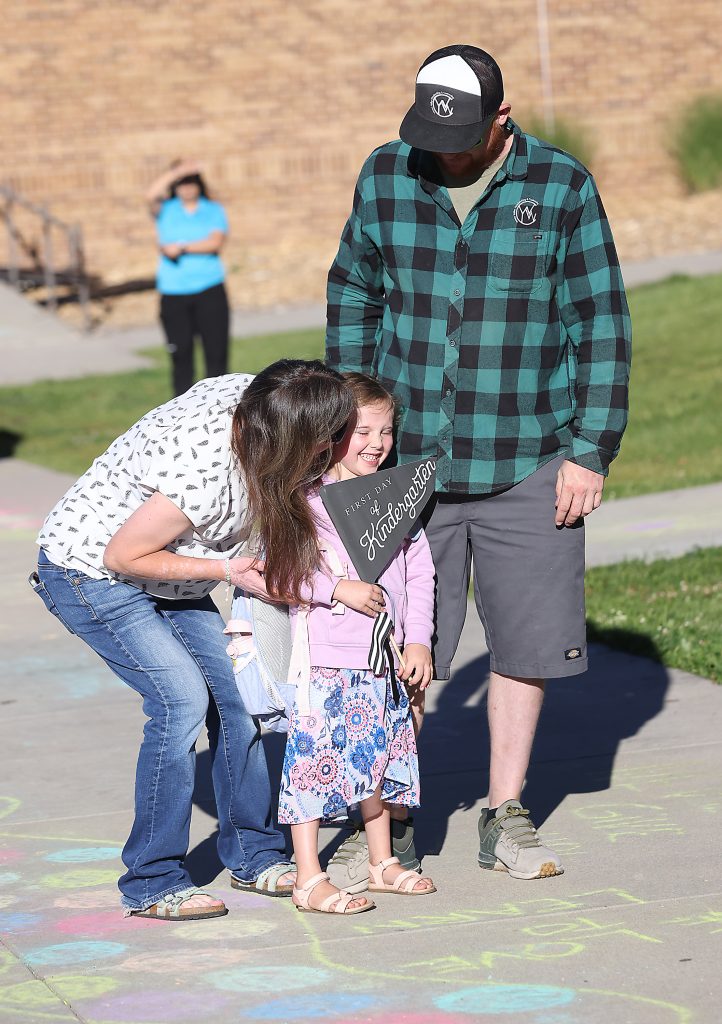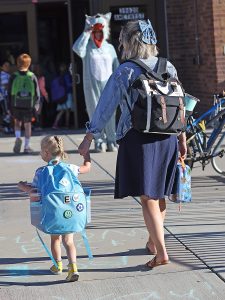Advice to help kids manage transition or anxiety of going back to school

John F. Russell/Steamboat Pilot & Today
With school starting for most Routt County children Tuesday, Aug. 19, many students may be mentally calm, emotionally ready or happy about going back to school. But others — not so much.
School and children’s counselors say almost all students can have some back-to-school jitters. However, for some students, a new school year can be stressful, challenging and possibly overwhelming.
“Going back to school is exciting for some kids, but others have trouble with anxiety heading into the new school year,” according to Child Mind Institute, a nonprofit organization that works to advance children’s mental health. “This is especially true of kids who are starting at a new school or are already anxious about being away from parents. This anxiety fades for most kids as the school year goes on, but parents can help them get off to a good start.”
Experts advise parents to check in with themselves first to evaluate their own stress levels, which in turn can impact their children.
“Kids definitely pick up on adult attitudes about those type of things,” said an upbeat Anita Hoffman, in her fourth year as counselor at South Routt Elementary School in Yampa.
Hoffman and colleague Bailey Craig, counselor at the middle and high school in Oak Creek, both encourage parents to establish a consistent routine with students as much as possible, such as a set bedtime and eating breakfast.
“Kids are routine-seekers,” Craig explained. “In the summer there is not as much of a routine they are using. So, getting back into the routine is one of the biggest things you can do.”

The school counselors encouraged families to help their children connect with fellow students at back-to-school nights and other events. They said this summer’s free outdoor movie screening with popcorn and ice cream on Aug. 8 at Decker Park in Oak Creek — sponsored by the Craig-Scheckman Family Foundation — provided a great way for students to reconnect before school started.
For students needing to find connections, the counselors may help younger students find a positive peer to sit with at lunch. For older students, they learn the kids’ interests and connect them with school clubs and activities.
“Take time to talk about the summer and remember what they did,” Craig said. “Connecting with your students over what they did over the summer is a positive way to help kids back to school.”
For some tactile steps, parents could go with an anxious child to visit the school ahead of time to walk around together and arrange to meet the teacher early.
Experts say parents can help children make a plan for handling specific worries the youngsters may have. Parents can help ease children back into school with good communication, active listening and trying to understand and validate what their children are feeling.
“Be sure to really listen to kids’ worries,” recommends the Child Mind Institute. “Often, kids just need a little validation (‘I know how hard it is to get to know a new teacher’) to feel better.”
A “Parenting Advice from Our Pediatric Experts” article by Children’s Hospital Colorado noted that anxiety about going back to school most often shows up in the form of exhaustion, stomach aches and headaches.
“New experiences can be scary, but talking through the first day and answering any questions on what the day and consecutive days will look like can release some of those jitters,” according to Children’s Hospital.
The hospital staff suggests identifying and communicating any mental health struggles with a child’s school nurse or school counselor to come up with a supportive plan, including strategies to combat anxiety such as box breathing or sensation exercises.
Experts at UCHealth advise parents to focus on establishing healthy routines such as a nutritious diet, good hygiene, a quiet place for homework and limiting screen time, especially before bed.
To foster positive mental health, UCHealth experts advise open communication by encouraging children to talk about their feelings and concerns about returning to school. Families can support children to maintain positive relationships with peers and teachers. Families can prepare for stress reduction by practicing mindfulness and relaxation techniques.
“Notice when anxiety becomes school refusal and help your child build resilience to get through the school day,” advises Children’s Hospital.
Beyond jitters, some children may have true anxiety about going to school called “school refusal,” according to the Child Mind Institute, “if they often try very hard to avoid school and get extremely upset about going.”
Experts say school refusal often accompanies disorders such as separation anxiety, social anxiety, depression or panic disorder.
“Kids with school refusal may also feel sick a lot and regularly visit the nurse,” according to the institute, which could indicate that a student is struggling with a class or a teacher, or is being bullied.
Experts suggest an evaluation from a professional counselor can determine if an anxious child needs additional assistance, such as exposure therapy to help kids manage anxious thoughts and face their fears little by little.


To reach Suzie Romig, call 970-871-4205 or email sromig@SteamboatPilot.com.

Support Local Journalism

Support Local Journalism
Readers around Steamboat and Routt County make the Steamboat Pilot & Today’s work possible. Your financial contribution supports our efforts to deliver quality, locally relevant journalism.
Now more than ever, your support is critical to help us keep our community informed about the evolving coronavirus pandemic and the impact it is having locally. Every contribution, however large or small, will make a difference.
Each donation will be used exclusively for the development and creation of increased news coverage.










